In Mahahual and across the Caribbean, we’ve witnessed a loss of up to 90% in living coral cover over the past two decades. This alarming trend asks for immediate action. A study conducted by CINVESTAV revealed that in the early 2000s, Mahahual had the most pristine reef in the Caribbean. It is heartbreaking to think about what we have lost, but it also it serves as a powerful motivator to conserve the remaining coral and restore the reef to its original state.
The Coral Reef Conservation Program is a comprehensive initiative dedicated to protecting and restoring the reef ecosystem and its rich biodiversity. Our primary endeavors within this program are the Reef Monitoring and Mahahual Coral Restoration projects. This program benefits the community and the extraordinary marine diversity that depends on the reef. Through the efforts of our dedicated scientists, interns, and volunteers, we hope to bring Mahahual back to one of the healthiest and most pristine reefs in the Caribbean Sea.
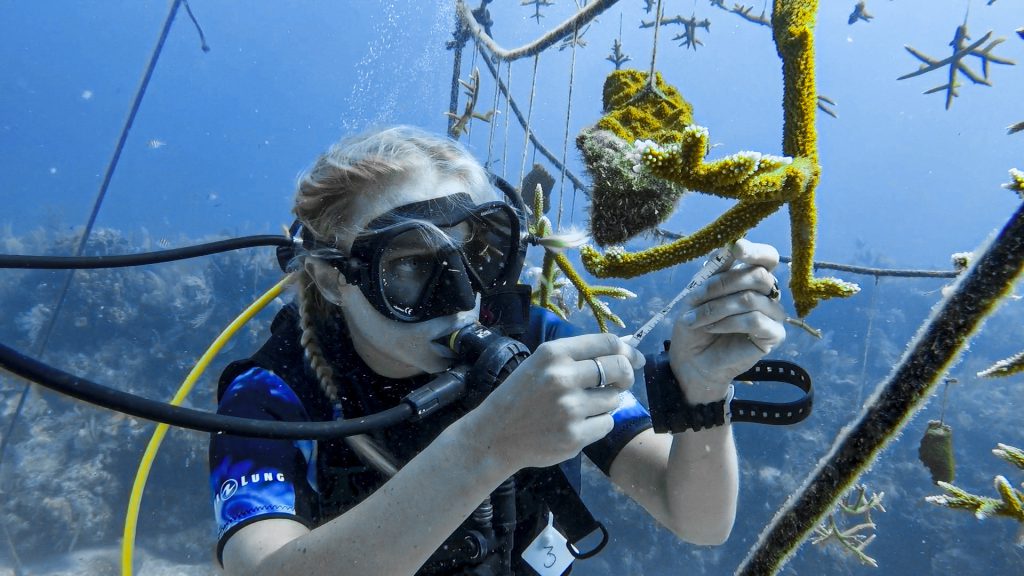
Reef Monitoring Project
The MARES Reef Monitoring project plays a crucial role in gathering essential data on the state of the reef through a meticulous, long-term sampling approach focused on various reef organisms and populations. This data provides valuable insights into the population and health of diverse species inhabiting the reef, including fish, coral, benthos, and mega-fauna. Our sampling methodology is based on the Atlantic and Gulf Rapid Reef Assessment (AGRRA) method, widely adopted by numerous research centers across the Caribbean region.
We also monitor the reef and lagoon with different methods including transect lines, Photo ID, BRUVS, and fishery assessments. The project aims to monitor the dynamic changes in the reef and its biodiversity, thereby gaining a deeper understanding of the factors contributing to its degradation. The collected data serves as a robust scientific foundation, enabling us to propose and advocate for concrete conservation measures.
A primary objective of the Reef Monitoring project is to provide substantial scientific support to diverse local conservation and territorial management initiatives.
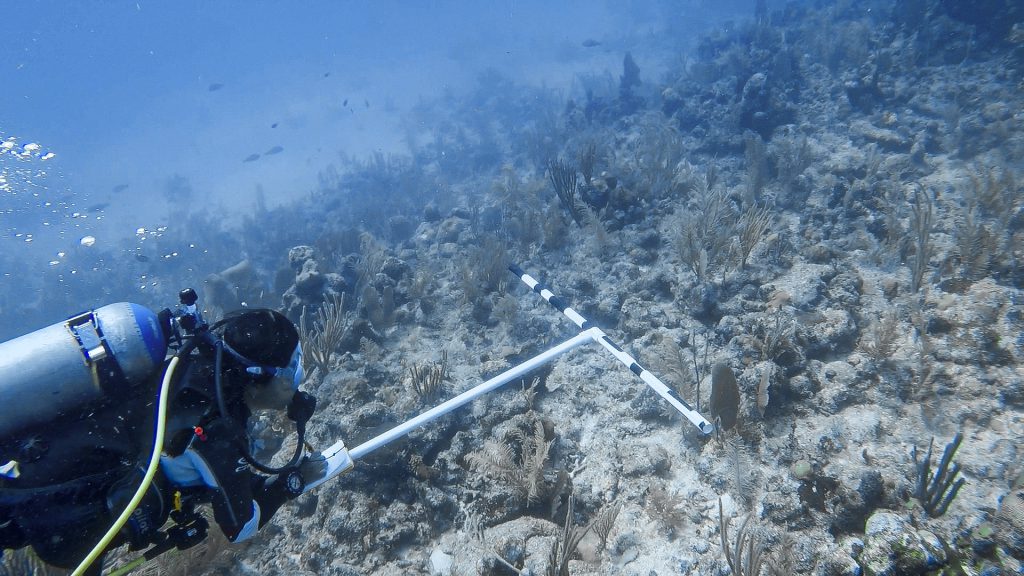
Mahahual Coral Reef Restoration Project
Coral reefs, often referred to as the “rainforests of the sea,” are invaluable ecosystems that provide habitat for numerous marine species, protect coastlines from erosion, and support local economies through tourism and fisheries. Recognizing their significance, the Mahahual Coral Reef Restoration Project is a dedicated effort to restore and conserve the deteriorating reef in Mahahual over the coming years.

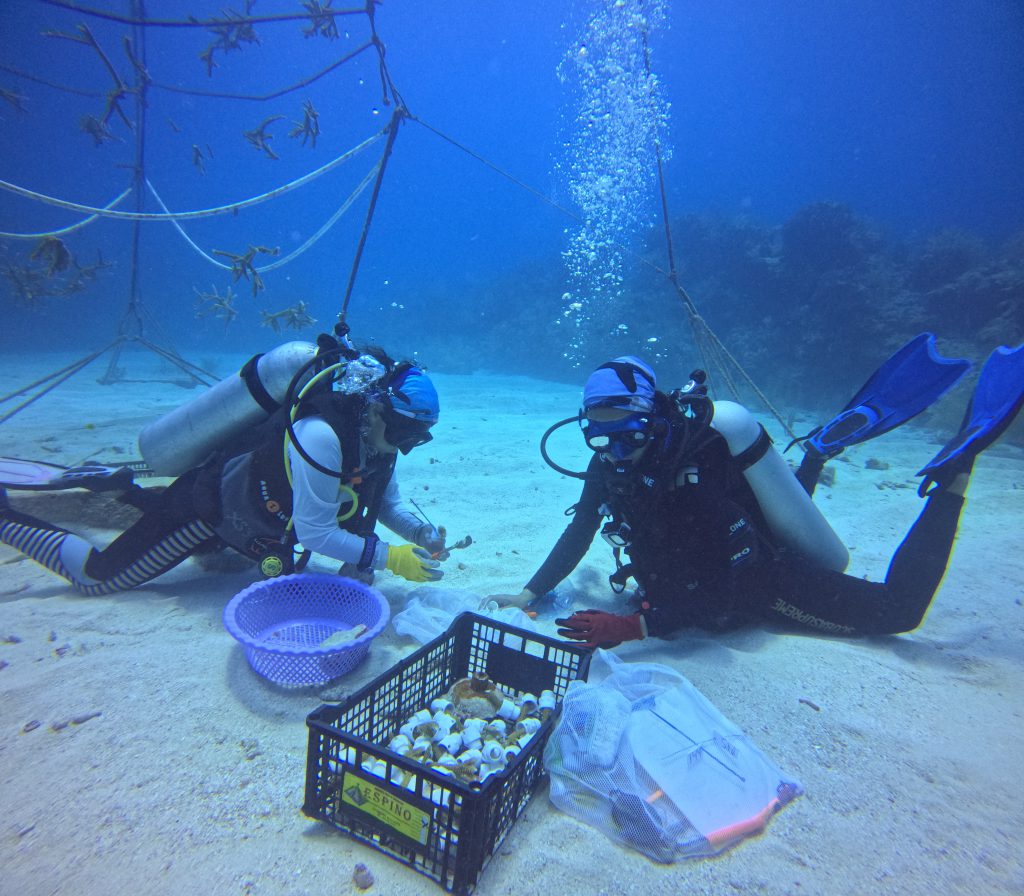
The primary objective of this project extends beyond the mere growth, maintenance, and outplanting of coral colonies. We aspire to foster a sense of community within Mahahual, uniting its residents around a shared goal: the preservation of our precious reef.
In practical terms, our aim is to restore 10,000m2 of degraded reef by outplanting 5,000 coral fragments of Acroporas over five years. These coral fragments are cared for in our in-situ nurseries before being transplanted onto the reef, where their growth and survival are closely monitored.
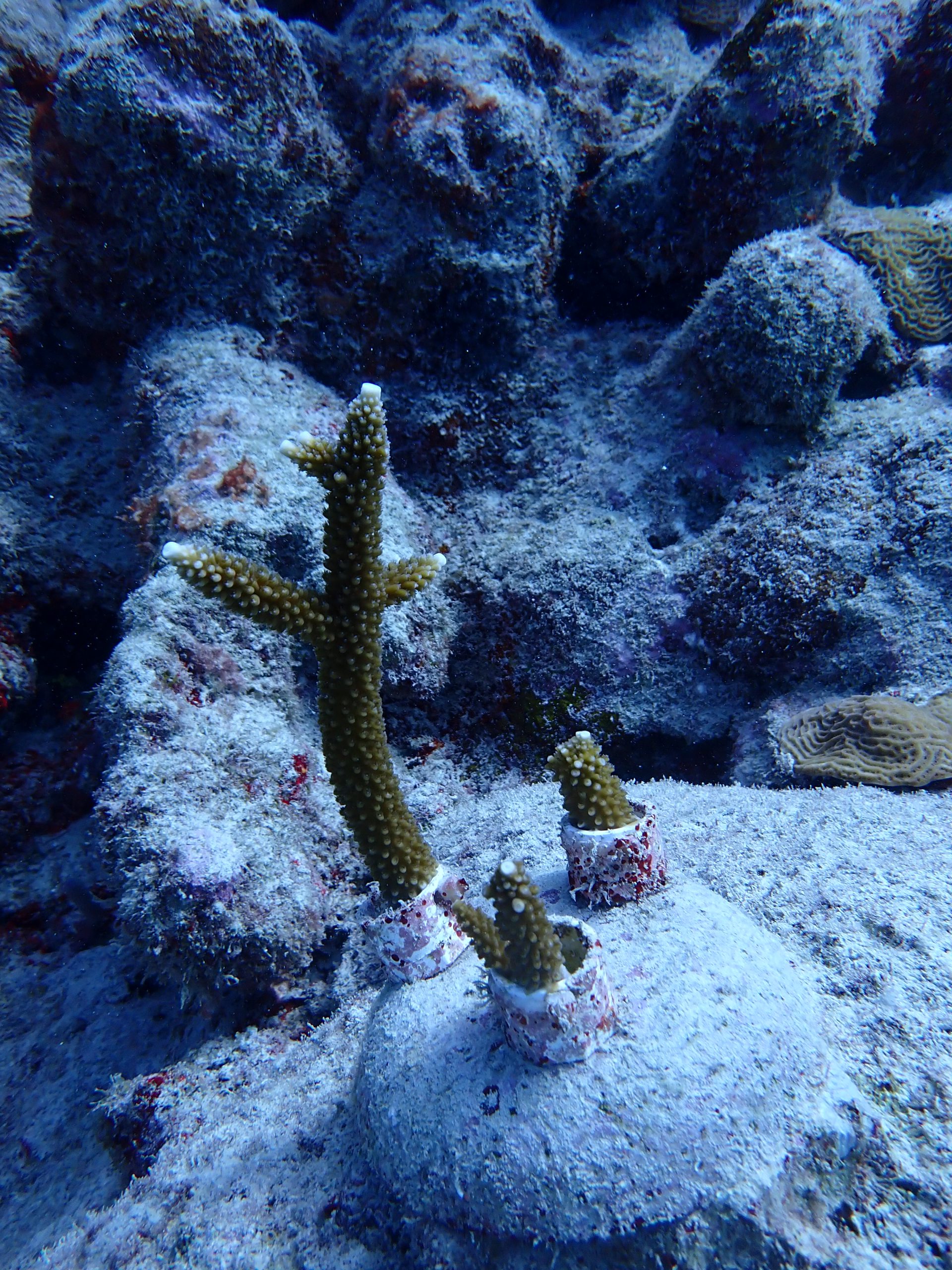
Moreover, to enhance the reef’s restoration efforts, we’ve embarked on the sexual reproduction of endangered coral species, including Acropora Cervicornis, Acropora palmata, Pseudodiploria strigosa, Diploria Labyrinthiformis, Montastraea cavernosa, Orbicella faveolata, and Orbicella annularis. This initiative involves the extraction of gametes from natural colonies, subsequent fertilization in our wet lab installations, and the planting of coral larvae on the reef a few weeks later. Colonies of these endangered species are also preserved ex-situ in the Mahahual Marine Restoration Laboratory for gene banking and controlled reproduction.
To ensure the genetic diversity of the reef is enhanced, genetic analyses are conducted on all coral mother colonies. This approach not only promotes resilience to stressors induced by factors like warming water temperatures and contaminated waters but also aligns with our commitment to sustainable coral restoration. Additionally, we contemplate reintroducing herbivores and eradicating lionfish to bolster the reef’s resilience, thereby improving the survival prospects of our coral fragments and recruits.
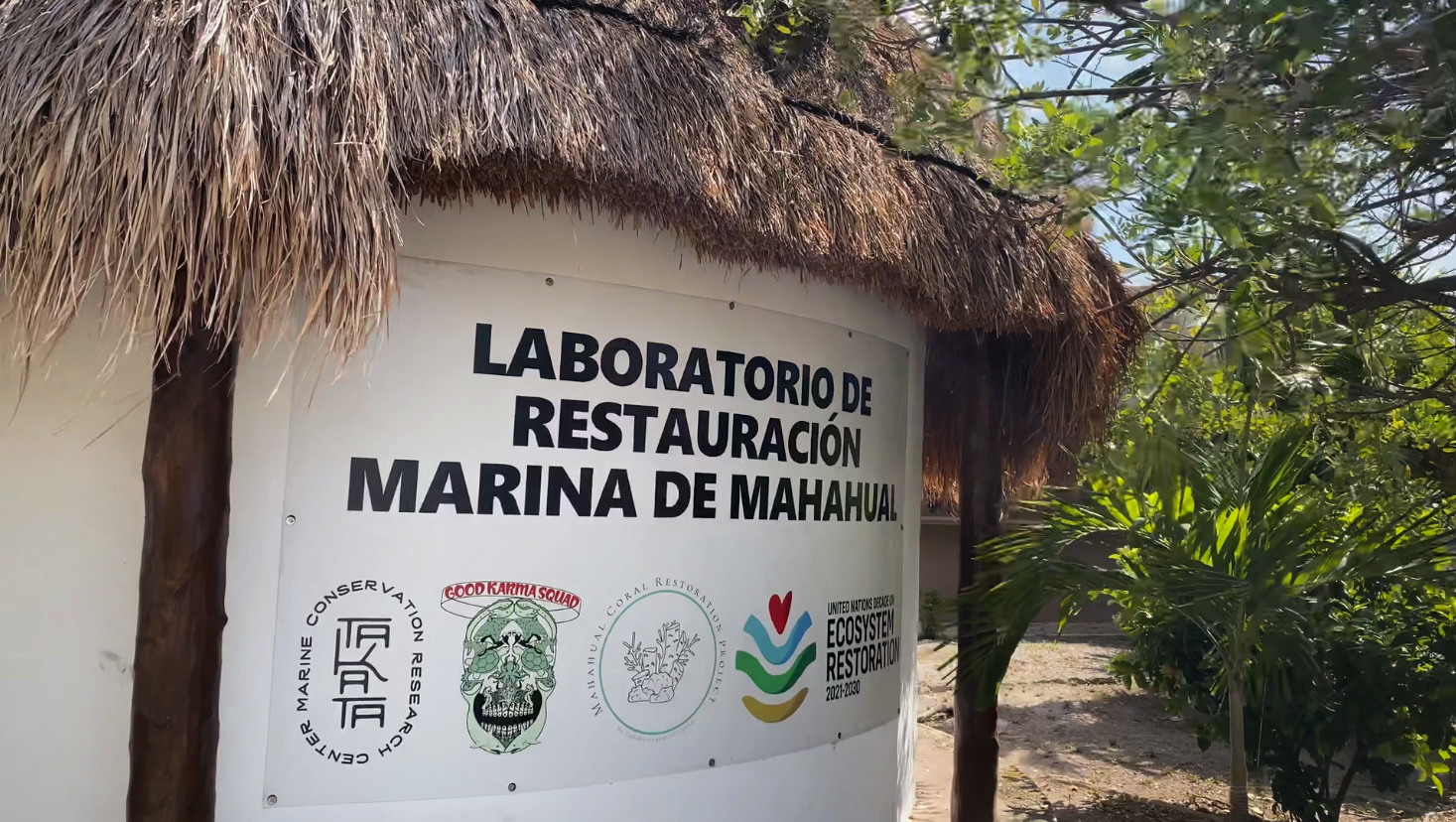

Passive restoration measures are integral to our approach, incorporating activities from our other programs in environmental education, social studies, integrated management, and conservation of associated ecosystems. Through these collective efforts, we strive to rejuvenate Mahahual’s reef, contributing to the broader preservation of coral reefs globally.